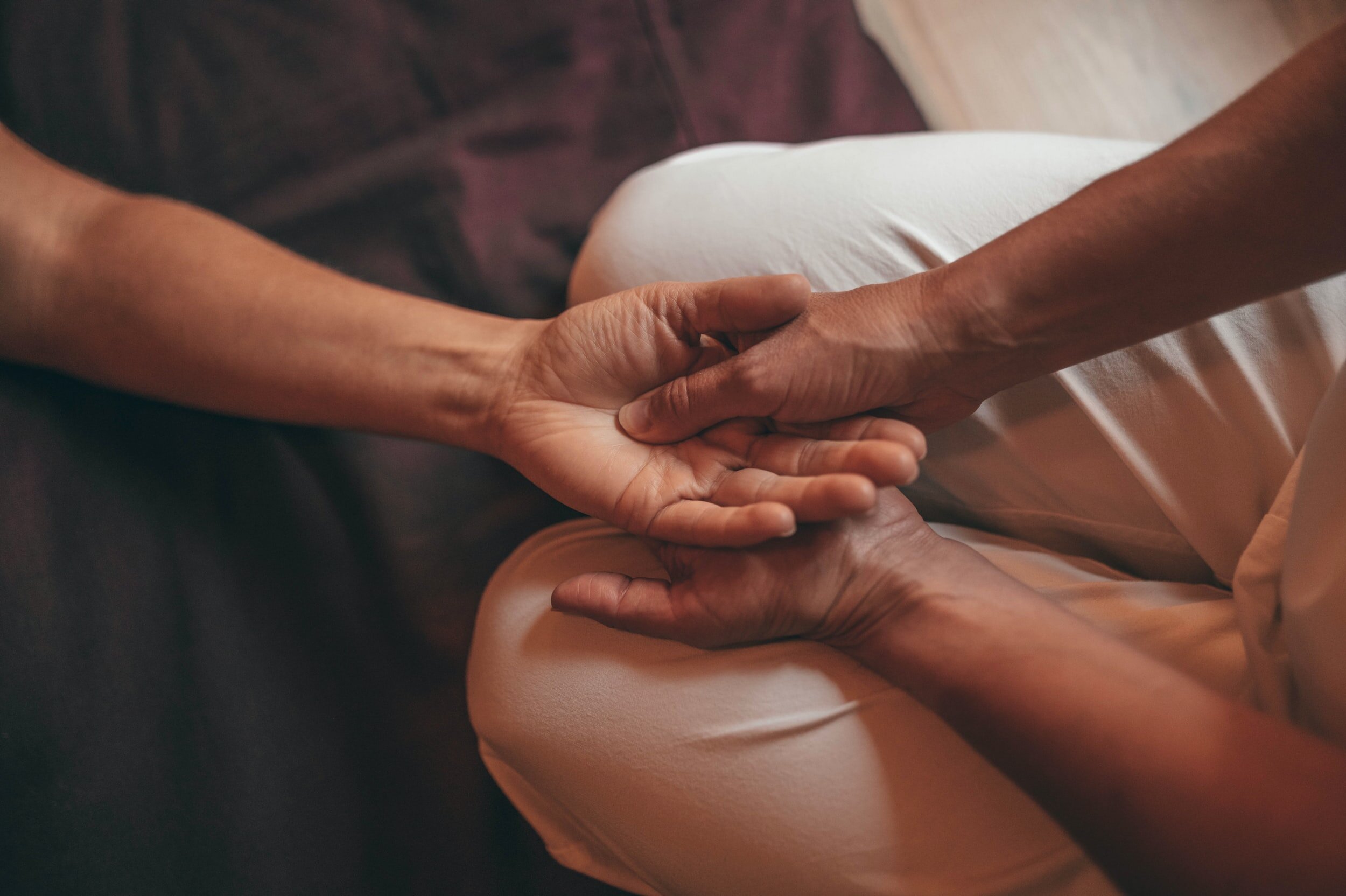Blog
Restorative Lifestyle Blog
Learnings, teachings and tips & tricks for anyone to reference during difficult times, stressful workdays and moments when you need to come home to yourself.
5 Ayurvedic travel tips: how to stay healthy on the road
Whether you’re ready to jump on a plane and escape to a green zone country or discovering nearby peaks and valleys via back roads this summer, the cautious return of travel means the return of its sidekick - disturbed circadian rhythms.
3 Restorative Yoga poses to combat fatigue and boost your mood
While there’s plenty of anecdotal evidence to suggest that practicing yoga asanas (postures) can change your mood, scientific research to understand how and why remains scarce. As it turns out, the link between the poses you’re practicing in Restorative Yoga and how you feel on the inside might just come down to your breath.
Summer S.O.S: Ayurvedic recommendations for Pitta season
It’s no secret that your body’s inner clock (circadian rhythm) is affected by the seasons, which bring changes in food availability, sun exposure and amount of precipitation, all of which influence your health and sense of wellbeing.
Salute the Sun: How to Celebrate the Summer Solstice from Your Yoga Mat
A simple moment in time might seem a surprising catalyst for celebrations that sometimes last several days in countries like Iceland, but imagine the impact of the apex of light combined with the midpoint in the growing season (halfway between spring’s planting and autumn’s harvest) for our forefathers as they emerged from a long, cold winter. Even with today’s technological advances making winter easier to cope with, the solstice can still provide ample opportunity to ignite feelings of peak energy, positivity and manifestation.
How Restorative Yoga benefits your creative process
Creativity, the source of all innovation, has remained at the forefront of scholarly inquiry by psychologists, therapists and now neuroscientists for decades. Creativity provides innovation at the source of all thought; how it expresses is almost infinite, whether that’s abstract painting, writing a novel, or problem solving when you’re hanging off the side of a cliff on belay. It stands to reason that the more innovative thinking there is happening in society at large, the greater the benefit to us all.
Ayurvedic diet: how to schedule your meals to aid digestion
We’ve all heard the adage that you are what you eat, but according to yoga’s holistic sister science Ayurveda, it’s not just the contents of your fridge that determine your sense of wellbeing. According to Ayurvedic science, your health depends largely on how well you digest your food, and it turns out that when you eat plays an important role in the functioning of your digestion.
What is your mental/emotional “type,” according to Ayurveda?
Together, yoga and its sister science Ayurveda help you refine your awareness so you can recognize when you’re locked into a mental pattern that’s self-limiting or even self-destructive, and offer you new, healthier patterns as a replacement.
Restorative Yoga for back pain: simple side bend to the rescue
It's too early for a lot of definitive data on how pandemic life has contributed to trends in musculoskeletal disorders, but safe to say that stress and longer periods spent sitting (on Zoom) are likely to deliver an increase in back pain.
Ayurveda and Marma therapy: how to add depth to your yoga practice
Though marma therapy is a specialized area of massage and reflexology, understanding how yoga poses may influence certain marma points may also add new depth to your practice.
Health Hack: Transform Your Life with the 4 Pillars of Health
We’ve all experienced that pivotal moment when you realise your life needs a total overhaul - maybe you’re exhausted after a full night’s sleep, running on a short fuse and snapping at everyone and everything, or suffering from digestive distress on the daily. But sensing you need a change can feel like a million miles from knowing where to begin. Should you try a new diet? Wake up earlier? Hit the gym? Or take up meditation? The truth, according to many experts, is all four.
Yoga and Stress: Optimize Your Yoga Practice to Elicit the Relaxation Response
We’ve all heard that yoga is good for stress, but how you approach your practice may be the key to whether or not that promise holds true. Understanding how stress operates on your body can help inform how you approach your yoga practice to maximise its stress-busting effects.
Sun Breath: Pranayama to Increase Vitality and Productivity
Though we may think of deep breathing as a means only to induce states of calm, Solar Pranayama techniques are great for a morning practice or any time that you’re feeling sluggish or unmotivated during the day. Though some can be quite vigorous, they don’t need to be in order to be effective.
Boost Your Immunity this Spring with these Ayurveda Self-Care Tips
Springtime brings a second peak for colds, with erratic temperatures irritating your airwaves and seasonal allergies making many of us more prone to infections. But you don’t have to fall victim to this seasonal assault. Yoga’s holistic sister science, Ayurveda, has long identified spring as a peak time of susceptibility to illness, but it also suggests some simple changes to your lifestyle so that you can bolster your physiology against unwelcome visitors this season.
Trouble Sleeping? Try These 6 Simple Life Hacks from Ayurveda
Sleep is considered to be one of the four pillars of health by yoga’s holistic sister science Ayurveda, alongside diet, meditation and exercise. Getting good quality sleep (meaning that you pass through delta brain waves and REM sleep) at the right time (overnight) ensures that your body has the opportunity to regulate hormone cycles and regenerate energy, while your mind can recover from the day and filter out non-essential information. All of this sets your whole physiology on track for optimal productivity and creativity tomorrow.
Spring Survival Guide: Stay Healthy, Energized and Happy This Season
Known as Kapha Season in Ayurveda, the second half of winter and spring reflect the accumulated cold and heaviness of our long winter. When the light, dry snow turns to a heavy sleet and the ice caps begin to melt into our rivers, our bodies may mirror this great thaw in the form of mucus-laden colds and allergies, brain fog, fatigue, and even weight gain and depression. This
The Mysterious Health Benefits of Ghee and Why You Should Try It
Ghee is purified butter and is used commonly in India. While in the West we’ve had a complicated relationship with fat and butter over the past 30 years resulting in that odd stepchild, margarine, that no one likes to mention, its benefits have been extolled by Ayurveda since time immemorial. The Charaka Samhita, a centuries-old Ayurvedic text, says, “Out of all the oils fit for human consumption, ghee is the best to eat.”
Hunger Is Your Body’s Way of Telling You to Digest Food. Here’s How to Listen to It
In Western culture, at best we are not taught to listen to our hunger, only to eat on a schedule often dictated by work or school, and we’re often told to eat until we are full. At worst, we’re told to fear hunger as a sign that the body is going into starvation mode and will start storing pesky fat cells out of panic (not true).
5 Tips from Ayurveda to Ignite your Morning Routine
Spring, known as Kapha Season in Ayurveda, can cause physical and energetic heaviness and sluggishness as we fight to shed our necessary winter coat. Now is the time to take advantage of the earth’s tilt, awaken earlier, move more and start to shed some layers!
What is Abhyanga? How Ayurveda’s Daily Massage Routine Can Help Slow Aging
Your skin is the biggest organ in your body, so it’s common sense to want to keep it healthy and practices to promote radiant skin span many centuries and cultures. Ayurveda, a system of holistic Indian medicine, identifies dryness as one of the main disease pathways and the primary contributor to aging and degeneration. Many conditions from chronic constipation to osteoarthritis and even neurological disorders are seen in Ayurveda to have their roots in chronic loss of lubrication throughout the physiology. Dryness is a natural side-effect of aging, but it can be accelerated or stymied through lifestyle choices.
Pranayama Can Hack Your Nervous System. Here’s How To Do It
While meditation practices span many cultures and traditions across the globe and have been subject to a fair amount of research, techniques to cultivate a deeper breath (Pranayama) are largely exclusive to the yoga tradition and mostly unexplored scientifically. As a result, Pranayama has retained an air of secrecy that might be about to be unlocked by science. Emerging science has identified a link between breath control and the Vagus Nerve that might explain why Pranayama can be so effective for your nervous system, and how it works to balance your physiology.
Start your journey
Choose the offering that’s best for you.




















